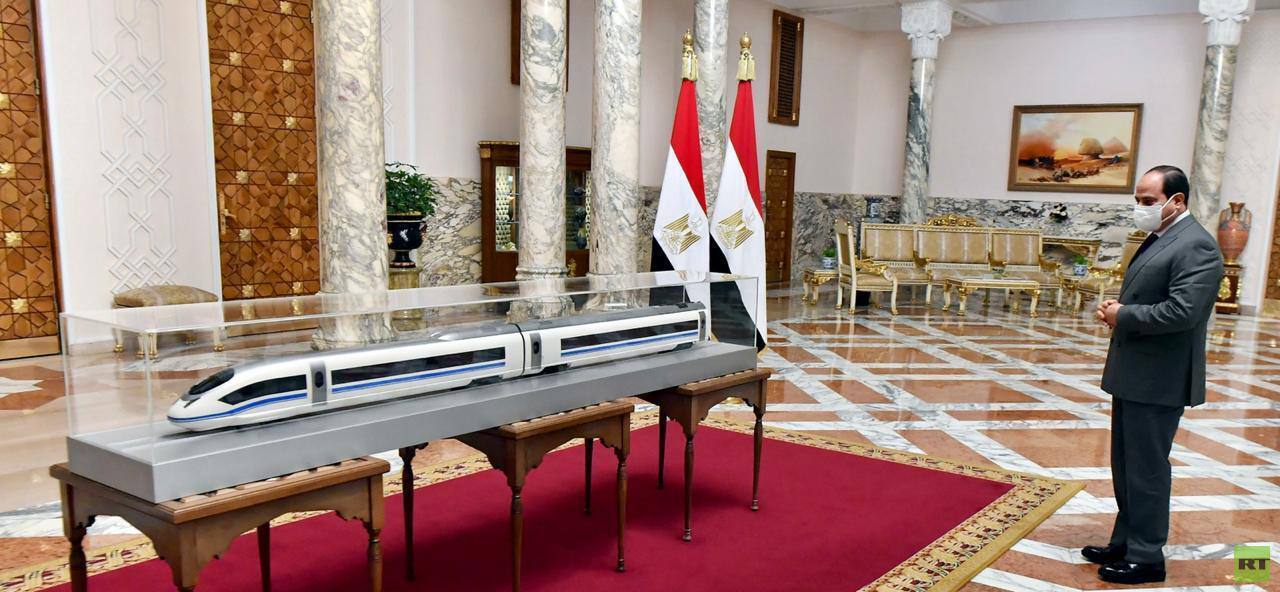The Egyptian foreign ministry announced the failure of the ministerial meeting between Egypt, Sudan and Ethiopia regarding the resumption of negotiations over the Grand Ethiopian Renaissance Dam, after Sudan assigned the task of suggesting resolutions of points of conflict to experts at the African Union. Egypt and Ethiopia refused, according the press statement of the Egyptian foreign ministry. This news has become usual over the past few years as failure has become the first probability expected before each round of negotiations. This fact reflects the mismanagement of this issue in Egypt and how Egypt became impotent in handling its foreign affairs.
Ethiopia prepares more
Disregarding the negotiations, Ethiopia went ahead with its plan for the second filling of the GERD’s reservoir with 13.5 billion cubic metres of water in July 2021, regardless of the agreement between the three concerned countries, which is expected to deeply affect the water flow to Egypt and Sudan.
The Sudanese minister of irrigation and water resources expressed great concern about the Ethiopian announcement, considering it “a direct threat to the Roseires Dam and the lives of the Nile basin residents in Sudan… the negative effect of the first filling in July 2020 (estimated at only 5 billion cubic metres) on the waterworks in Khartoum is not a secret to anyone.”
In parallel, Ethiopia announced this week that it was laying the foundation stone of a new dam in Amhara on the Blue Nile, a main tributary of the Nile River, with a storage capacity of 55 million cubic metres, a height reaching 45.5 metres and extending over 371 metres.
The building of the dam is expected to take three years with a cost of $125 million. Although the storage capacity of the dam is small compared to the GERD’s one (the latter is estimated at 74 billion cubic metres), the timing of the announcement indicates the indolence of Ethiopia in dealing with Egypt’s and Sudan’s concerns. This is while the Egyptian state stands powerless against Ethiopia.
Egypt waives while Ethiopia eludes
An Egyptian governmental source said to Mada Masr that the failure of the last round was not because of Egypt’s reluctance to concede but because Ethiopia eludes to waste time without a binding deal albeit partial, especially after the success of the Ethiopian solo step in July, when Ethiopia announced the first filling of the dam, and Egypt did not suspend the negotiations.
The official clarified that the Ethiopian reluctance against a binding deal is motivated by several reasons, on top of them is the political one. This is that the Ethiopian Prime Minister Abey Ahmed uses this issue to anchor his feet domestically, as he appears with this arrogance as the strong leader, who challenges the international society and the USA.
Moreover, Ethiopia is not subjected to any foreign stresses to push it to a binding agreement, as the European Union did not pressure it enough, and the stopping of US aid was limited and not considered real pressure. Furthermore, Ahmed ignored direct warnings from Donald Trump all the way to reject a call from him weeks before.
Al-Sisi’s impotence
In June 2020, Egypt appealed for the UN Security Council to intervene and find a solution for the GERD, but the council just referred the file to the African Union. The decision represented a diplomatic failure for Egypt as it was hoping the council would put more pressure on Ethiopia. One month later, Abdel Fattah al-Sisi emphasised his rejection to a military solution to the GERD crisis. Instead, he said that the negotiation is his only choice and called on the Egyptian media to stop discussing any possible military solution.
Al-Sisi’s statements were positive from a diplomatic perspective, but speaking politically, they were in the interest of Ethiopia as the exclusion of any Egyptian escalation promoted Ethiopian reluctance.
The Egyptian regime’s allies have been proved through the crisis useless. The Emirates, which al-Sisi asserts he has tight relationships with, rejected to use its financial influence in Ethiopia to push Addis Ababa to the negotiations table in a more serious manner. Even more, Abu Dhabi announced, during the peak of the crisis in 2018, that it was investing $3 billion to support the Ethiopian economy, including a $1 billion deposit in the National Ethiopian Bank to support the dollar flow to Ethiopia.





Recent Comments